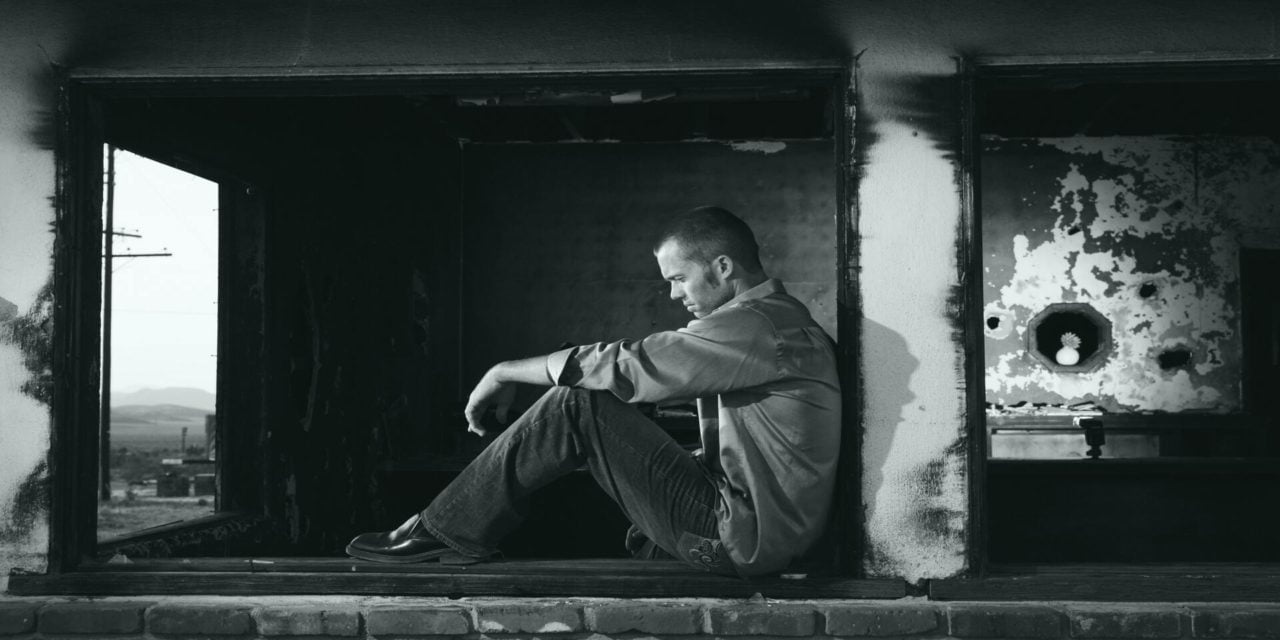Bucket Hats: Discover the Latest Trendy Designs
Bucket Hats: Discover the Latest Trendy Designs Bucket hats have become increasingly popular in recent years as a trendy accessory. These stylish hats are not


There’s no doubt that we’ve all been through a lot in the last year. That said, it is more important than ever to pay close attention to your mental health during COVID-19. Whether you have good days and bad ones, just feel isolated away from loved ones, or need medical assistance, it is totally okay.
We’ve designed this guide to give you a few options and help you feel less alone. We’ll talk a bit about what you should monitor yourself for and why it is important. There is additional guidance for parents of teens and children on how to monitor them for mental health problems during the pandemic.
While we aren’t healthcare professionals, we want you to know that you’re not alone. We’re all in this together and keeping an eye on your mental health is something everyone should do during these unusual times.

Talking about this difficult time is sure to bring on strong emotions in most people. Social distancing, quarantining, and other related protocols have serious mental health effects on us all. After all, humans are social creatures, and not getting to spend time with loved ones, hug, or otherwise spend time together can leave you feeling sad, depressed, or worse.
Mental health during COVID-19 is something that most doctors say they’re worried about, especially in adults under the age of thirty, teens, and children. These are typically the most social age groups, now stuck in isolation instead of living life to the fullest.
When it comes to mental health, coronavirus is making many individuals feel anxious or depressed. The after-effects of the pandemic are also leading many to lose those closest to them, which brings on an added layer of grief and other psychological traumas. That’s why paying attention to how you feel and attempting to understand what causes it is so important.

If you feel as though you’re on the edge of a mental breakdown, you’re not alone. Depression isolation combined with fear and anxiety is more common now than ever. In fact, take a moment to jump on social media and mental health is a pretty common topic. People are openly talking about how they’re feeling and why.
So, what are some symptoms of depression? Fear and anxiety are two of the most common challenges to mental health during COVID-19. Anxiety symptoms generally include sleeping too much or not at all, racing thoughts, and uncontrollable emotions. Additionally, changes in appetite, mood, and thought patterns are common indicators of depression.
Loss of interest in everyday activities and an overwhelming sense of sadness are also common signs of depression. This is especially true with those forced to self-quarantine or otherwise be away from loved ones, such as seniors living in care centers.
Has there been an increase in mental health issues in children and teens? Sadly, yes. After schools closed nationwide last spring, many kids became cut off from their regular source of social interaction. Add in additional family stressors, frustrations, and fear, today’s youth are dealing with more than we ever thought was possible.
Helping your children cope with their mental health during COVID-19 should be a priority for every parent or caretaker. The easiest way to do this is to regularly check in with your kids about how they are feeling and the concerns they have about the pandemic. Opening lines of communication is critical during this challenging time.
It is also important to give children who have experienced the death of a close loved one due to COVID-19, such as a parent or grandparent, proper grief support. Many online and virtual counselors are available to help make this process easier for the whole family.

How many people have depression during COVID-19? We can’t be sure. However, most mental health experts agree that it is the largest secondary health threat we face right now besides the actual virus. Pandemic depression is real and finding positive coping mechanisms is vital.
Learning how to cope with depression starts with understanding that you aren’t powerless. You have far more control over your circumstances than you likely believe, which is why it is vital to reach out and stay connected with those you trust for support. Even if you can’t gather in person, schedule regular chats or video calls to keep communication open.
You can also help beat coronavirus anxiety and improve your mental health during COVID-19 by getting plenty of sunlight and fresh air. Take a socially distanced walk, play with your dog in the backyard, or otherwise make time to sit in the sun. Even if all you can emotionally handle is opening up the blinds and enjoying a sunbeam streaming through the window, it’s a start.
Wondering how to manage anxiety and reduce stress for improved mental health during COVID-19? Most mental health articles state that getting at least eight hours of sleep a night, turning off the bad news in the media, and doing things that make you happy are the easiest ways to reduce anxiety and increase endorphins. Eating well and working out moderately are other helpers.
While these mental health tips seem almost too simple, they can really help beat stress anxiety. Also, keep in mind that managing anxiety is a constant exercise. While you might feel excellent one day, stressful situations can cause it to come back even stronger.
So, is it worth it to learn how to handle anxiety? Absolutely. We might be in the middle of a global pandemic, but knowing how to put yourself on a path to mental stability is a life skill that you’ll still have long after the danger is in the past. That’s why it is so important to pay attention to your mental health during COVID-19 and beyond.

According to some depression and anxiety articles, loneliness during isolation is a leading cause of mental health problems during the pandemic in 2021. After over a year of social distancing, we all want to get back to where we once were and the ongoing battle is having a negative impact on our psychological health.
If you’re having problems with keeping a positive outlook on your mental well-being during COVID-19, it is important to seek out resources. But not all require a visit to a doctor. Consider using your pet as a comfort animal to help in the process of controlling anxiety.
And make sure you don’t replace regular social interaction with time spent on the Xbox or PlayStation. Video games and mental health problems can sometimes go hand-in-hand, so the best option for positive mental health during COVID-19 is to try to keep them to a limited amount of time each day.

What if you’ve lost a loved one? It’s normal to have coronavirus anxiety mixed with grief during this trying time. Hundreds of thousands of families across the United States and the world have lost those they love and these feelings are more than reasonable.
Learning how to cope with anxiety after the death of someone close to you is something you have to practice. Getting to a place where you know how to deal with anxiety takes time and patience. Asking for grief and anxiety help is crucial to your mental health during COVID-19. Reach out to friends and family or professionals for support as you process the loss and learn to move forward.
How common is depression? As we’ve mentioned already, it is increasingly and alarmingly normal during these trying times. Mental health during COVID-19 is a topic that affects nearly everybody. This includes family members, your closest friends, neighbors, and so many more.
Wondering if we are going to be able to get back to so-called normal is reasonable. The truth? While we might be able to move forward, there are very few things that are still the same. Learning to cope with depression and anxiety now is crucial to living a happy life when the virus has slowed down. Pay attention to your mental health during COVID-19 to ensure you’re feeling your best later on. Make sure you are staying safe and keeping others around you safe as well. You can get extremely cheap masks for some protection against covid here.

If you’re wondering how to get mental health help, you’re not alone. This is a common topic that most people want to know about when they’re looking for ways to break through depression and anxiety during the pandemic.
The first place to discuss mental health during COVID-19 is with your family doctor. They should have a recommendation of a therapist in your area that offers telehealth services and specializes in anxiety and depression.
Additionally, if you or someone you love is having suicidal thoughts or self-harm, immediately contact the National Suicide Prevention Lifeline at 800-273-8255. They are available twenty-four hours a day and have counselors who speak both English and Spanish.
Bucket Hats: Discover the Latest Trendy Designs Bucket hats have become increasingly popular in recent years as a trendy accessory. These stylish hats are not

The ultimate guide to rocking the trendy bucket hat styles. Elevate your fashion game with versatile and stylish bucket hats. Click here for fashion inspiration and tips!
Discover the best places to buy bandanas and find your unique bandana style. Explore the wide range of designs and styles available at Wholesaleforeveryone.com and get free shipping on orders over $35
Discover how to create a stylish and versatile wardrobe with tops. Elevate your outfits and transform your style with the right tops. Click here to learn more.
Discover expert tips for caring and maintaining your tops to build a versatile wardrobe. Extend their lifespan, retain shape and color, and save money with proper care. Click now for a wardrobe that truly represents you
Fashion events for tops, including t-shirts, shirts, hoodies, and jackets, showcase the latest trends and styles. Stay updated with industry developments and explore Wholesaleforeveryone.com’s collection for quality